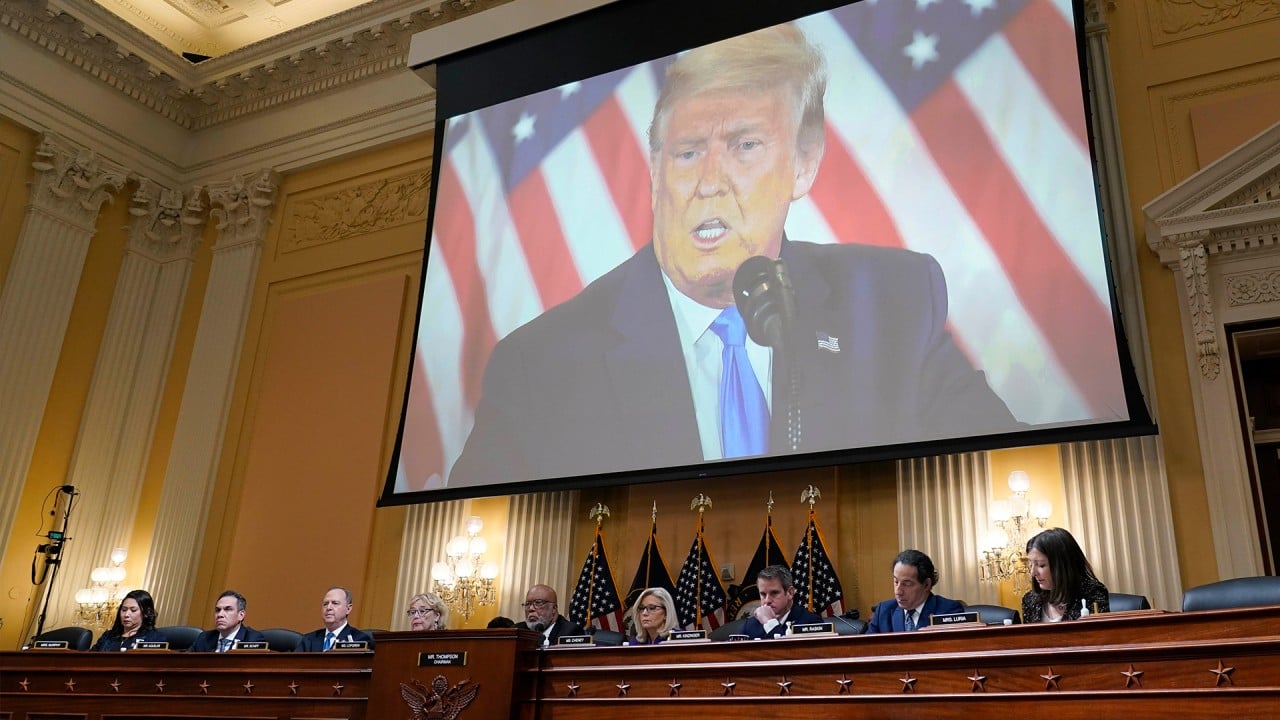
Attack on US Capitol: two security time bombs for America revealed by committee report
- White supremacists and extremism remain a powder keg that could be ignited in the next presidential election
- Also, if someone like Trump could be placed in charge of the ‘nuclear button’, are US nuclear codes secure enough?
The first strand can be extrapolated from the Department of Justice’s statement on the Michigan case, which noted that Barry Croft Jnr had conspired to kidnap the governor using “weapons of mass destruction against persons or property, and knowingly possessing an unregistered destructive device, which was a commercial firework refashioned with shrapnel to serve as a hand grenade”.
This divisive ideology of oppression is similar to what former president Donald Trump advocated in his vitriolic denunciation of his political opponents and was the core of the message communicated to his supporters in the run-up to the January 6 charge on the Capitol, the seat of the US legislature.
As committee chairman Bennie Thompson noted in his foreword: “If this Select Committee has accomplished one thing, I hope it has shed light on how dangerous it would be to empower anyone whose desire for authority comes before their commitment to American democracy and the Constitution.” Expressing faith that “most Americans will turn their backs on those enemies of democracy”, he noted that “some will rally to the side of the election deniers”, including “white supremacists”, “violent extremists” and “groups that subscribe to racism, anti-Semitism and violent conspiracy theories”.
The second strand is related to Trump’s persona and the onerous responsibility of a US president in relation to the nuclear “button” and the authority to use it. While the House committee does not dwell on the nuclear issue, it should be commended for the candour with which it identifies the inadequacies of individuals with executive authority and the institutional ecosystem of the US federal government.
Given that any accidental, inadvertent or mala fide use of nuclear weapons – or even simply the threat to use this apocalyptic capability – must be pre-empted, the report raises a disturbing question. Are the US’ command and control processes for its nuclear weapons adequate and do they merit a deep review and a radical rewiring? This question should be also asked of other states with nuclear weapon capabilities.
In the 2016 presidential campaign, Trump’s Democratic opponent Hillary Clinton had cautioned the electorate: “This is not someone who should ever have the nuclear codes, because it’s not hard to imagine Donald Trump leading us into a war just because somebody got under his very thin skin.”
Admirably, the House committee report illuminates many parts of the murky iceberg beneath the US’ domestic fabric. Whether this old democracy, which also happens to be the world’s most powerful nation, has a society with the wherewithal to heal the fissures that brought it to the brink two years ago, will shape the contours of 2023.
Commodore C. Uday Bhaskar is director of the Society for Policy Studies (SPS), an independent think tank based in New Delhi


